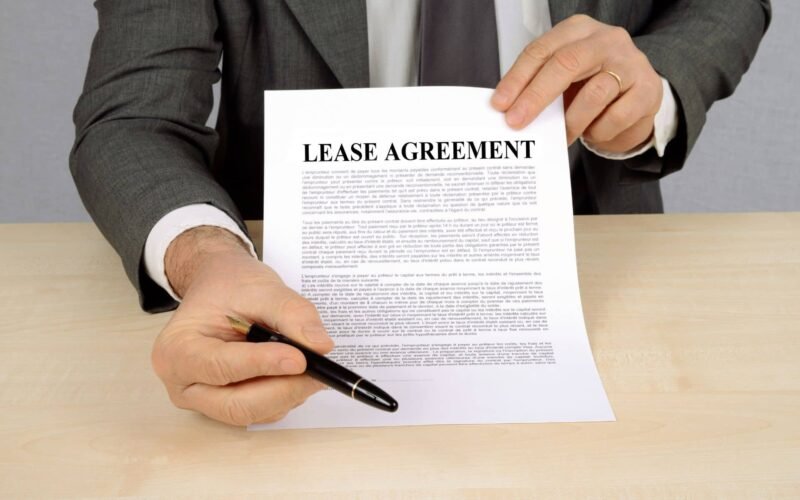|
Getting your Trinity Audio player ready...
|
It is always confusing for a small business or a startup to choose between equipment leases and equipment loans. Often, people do not know the meaning of equipment in a business. Before moving to equipment loans, it is important to understand “Equipment”.
Equipment is any tangible assets important for the operation of a business other than land, property, or building. For example, desks or computers, printers, or perhaps an x-ray machine, everything is equipment. For different businesses, equipment might be different but the means of gaining equipment are always the same.
How Can You Gain Equipment For Your Business?
It is simple. You can get equipment either by purchasing them or by leasing them.
Now, here the situation is tricky. Purchasing equipment and leasing the same are two different aspects of a business. The decision mainly depends upon the business, the availability of finances, future planning, and a few other factors.
What is Leasing of Equipment?
Equipment leasing is simply borrowing the equipment where the lessor has ownership of the equipment. The lessor leases the equipment on behalf of a flat monthly fee.
Leasing is a feasible opportunity only when a business is new and the business owner is short of finances. It is a short-term solution only. In the end, the total amount of the lease sometimes gets higher than the actual market price of the equipment.
What is Purchasing of Equipment?
Purchasing equipment is a long-term solution for a business. However, to purchase equipment, you will need finance. Often, for a small businessperson or a startup, getting ample finance is a big issue.
Here comes the option of equipment loans. Equipment loans are handy when the businessperson does not have optimal money to buy equipment. Before moving further, do you know the meaning of a loan?
What is a Loan?
A loan is also borrowing, but it differs from a lease. A person can lease equipment but take loans in terms of money. There are numerous kinds of loans available in the financial market. Bank loans, personal loans, business loans, home loans, vehicle loans, and equipment loans are a few of the examples.
What is an Equipment Loan?
When a person borrows money from a bank, financial institution, or moneylender to buy equipment, it is an equipment loan. The borrower has to repay the loan amount in a fixed time. It also costs him a fixed interest rate to repay over the loan period.
Where Can You Get an Equipment Loan?
For a business, the equipment can emanate from many sources. It depends upon the creditworthiness of the borrower. Sometimes, the nature of the equipment also decides the possibilities of the equipment loans. However, some prime sources to get equipment loans or machinery loans for a new business are:
- Commercial banks for commercial equipment loans
- Credit unions or equipment financing companies
- Government-approved SBA loans
Several online lenders or equipment financing companies are also helping big and small entrepreneurs get easy equipment loans.
Should You Take an Equipment Loan over an Equipment Lease?
As mentioned earlier, both, equipment loans and equipment leases have their significance, features, pros, and cons. Let’s compare both and decide which one is better.
Comparison between Equipment Lease and Equipment Loan
| Equipment Lease | Equipment Loan |
| Requires a monthly or yearly rent payment as per the agreement between the lessee and the lessor | Requires paying the loan amount as well as the regular fixed interest rate |
| The lessee has no legal right over the equipment. | The borrower of the loan is the owner of the equipment. |
| The lessee has to return the equipment to the lessor after the lease tenure is over. | The lender doesn’t get the equipment after the complete repayment of the loan. |
| The lessee has to pay the lease amount at the beginning of the first payment period. | The down payment is greater than the first lease payment. In addition, the borrower has to arrange the finances for the leftout cost of equipment. |
| The lessee can pay the lease payment either in arrears or in advance. | The borrower has to repay the loan payments in EMIs. |
| The equipment itself acts as collateral. | The borrower has to submit the collateral to the lender based on its creditworthiness. It can be the current or fixed assets. |
| The lessee can claim the tax deduction over the entire lease payment. | The borrower can only claim the tax deduction over interest. |
| The lessee needs not to bear the cost of depreciation of the equipment. It may simply get the new lease for the new equipment. | The borrower has to bear the risk of depreciation or obsolescence of the equipment. |
Collateral Security for Equipment Loans
Collateral security often depends upon the amount of the loan. Sometimes, the machinery or equipment is worthy enough to act as collateral against the loan for them. However, if you have a bad credit score, getting an equipment loan can be tough and you will be left with only the option of an equipment lease.
Bottom Line:
If you can bear the expenses of the devaluation of the equipment, need the equipment for a long-term/lifetime basis, and have good collateral, going for an equipment loan over an equipment lease is a wise choice. However, for small businesses or startups with a short-term equipment requirement, an equipment lease is a much more feasible solution.
Before opting for an equipment loan, do not forget to calculate the interest online through an equipment loan calculator. You also need to collect and submit the machinery loan documents to the lenders. Of course, a machinery loan without security is not possible. Arranging security or collateral before seeking the equipment loan will make getting the loan a walk in the park.








